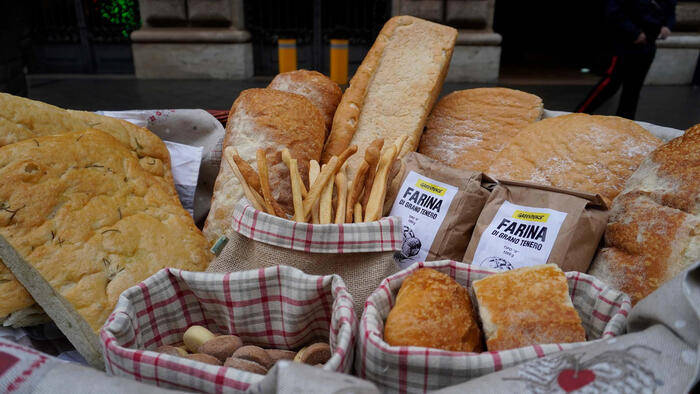Enlarge image
Harvest near Ingolstadt (symbol picture): Germany currently exports only five percent of its grain production
Photo: MICHAELA REHLE / REUTERS
Grain experts observe "sometimes historical price fluctuations" for grain, maize and oilseeds such as rapeseed - possibly with consequences for consumers.
"If the prices for vegetable oils and grains stay that way for a while, then within a few months this will certainly be reflected in the food prices in the supermarket," said Thorsten Tiedemann, chairman of the board of the Hamburg Stock Exchange's association of grain traders -Agency.
It is true that raw material prices for baked goods only have a small share in the sales price.
"But meat production will certainly become more expensive with feed," said Tiedemann.
In his opinion, the world market trend should also have an impact on consumer prices for products such as flour and vegetable oil.
The World Food Organization (FAO) has been observing rising prices for practically all agricultural commodities for some time.
The bottom line was that the FAO price index for food was, according to the latest data, 31 percent above the previous year's figure in April; after eleven monthly increases in a row, it has now reached its highest level in seven years.
The trend is particularly pronounced for oilseeds, where the price level has now doubled compared to April 2020.
From the FAO's point of view, this development is also fueled by the demand from manufacturers of biofuels.
"Somewhat out of joint"
"It has long been expected that something will happen in the prices due to the high liquidity and also partly due to the bottlenecks that arise in the economy due to Corona restrictions," said Tiedemann.
After a "very comfortable supply and demand situation in the grain and oilseed market", "a few poor harvests with an accompanying reduction in stocks" have now resulted in something going wrong ".
In addition, demand is picking up in regions with stronger growth after the Corona recession.
"Then there are a few more weather reports, in Brazil we are looking at a relatively bad harvest, and then of course the markets will go up very strongly."
Tiedemann expressed concern that Germany's self-sufficiency in agricultural raw materials was declining.
In the grain marketing year, Germany had a net export of around two million tons.
"That's not even five percent of the total grain production that we have left over here." In previous years, "seven to ten million tonnes net" were exported.
The port of Hamburg is the central hub for the grain trade in Northern Europe.
The Grain Traders Association has been the official mouthpiece of the international trade in grain, oilseeds, animal feed, pulses, fishmeal and table seeds for over 150 years.
ime / dpa-afxp




/cloudfront-eu-central-1.images.arcpublishing.com/prisa/Q3R3DI62AJHR7AGTRNQPF2AHCI.jpg)




